Kelli O’Hara brings the bright lights of Broadway to the Michigan Theater
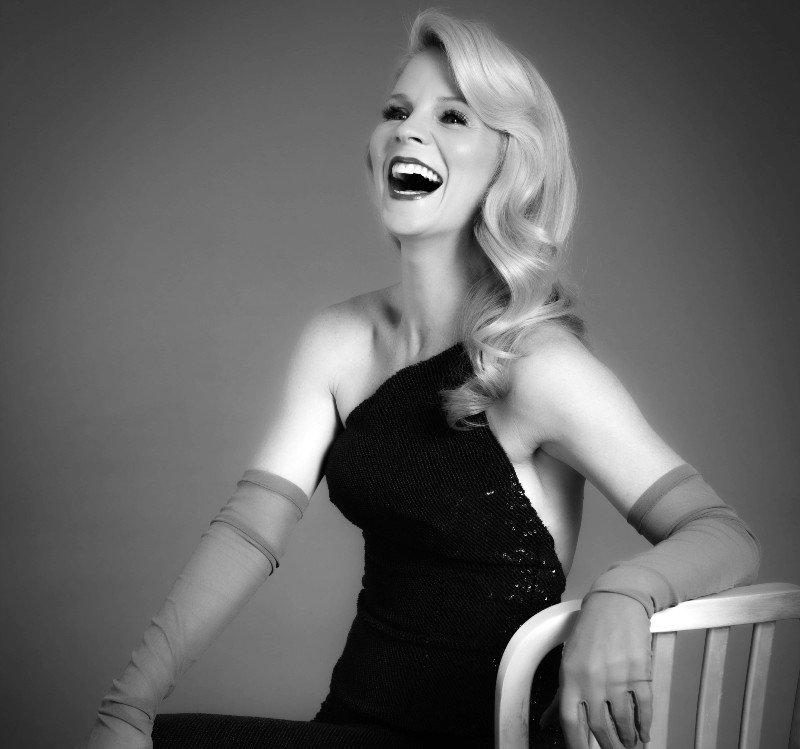
Kelli O’Hara is one of those versatile Broadway stars who shines in every show she’s in.
She originated the role of Clara in The Light in the Piazza; played feisty union leader Babe opposite Harry Connick Jr. in The Pajama Game; washed a man right out of her hair as Nellie Forbush in South Pacific; originated the role of Francesca in the stage musical adaptation of The Bridges of Madison County; and charmed her young charges, royalty, and audiences alike in The King and I, for which O’Hara won the 2015 Tony Award for Best Performance by a Leading Actress in a Musical.
All the other O’Hara performances I mentioned earned her Tony nominations, too, plus two more besides: Kiss Me, Kate and Nice Work If You Can Get It. So to call O’Hara one of our era’s greatest leading ladies of the stage isn’t hyperbole; it’s just true.
And although O’Hara’s slated to star in the world premiere Broadway musical adaptation of Days of Wine and Roses, scheduled to start previews January 6, she’s also recently been performing concerts in different parts of the country, and she’s headed to Ann Arbor’s Michigan Theater on Sunday, November 12 at 7 pm.
In advance of the show, the native Oklahoman answered a few questions via email about what inspired the concert tour; her newest upcoming show; and her memories of working alongside Ann Arbor native Ashley Park in The King and I.
Greetings From Hell: The devil is in the details in the University of Michigan’s "Orpheus in the Underworld"
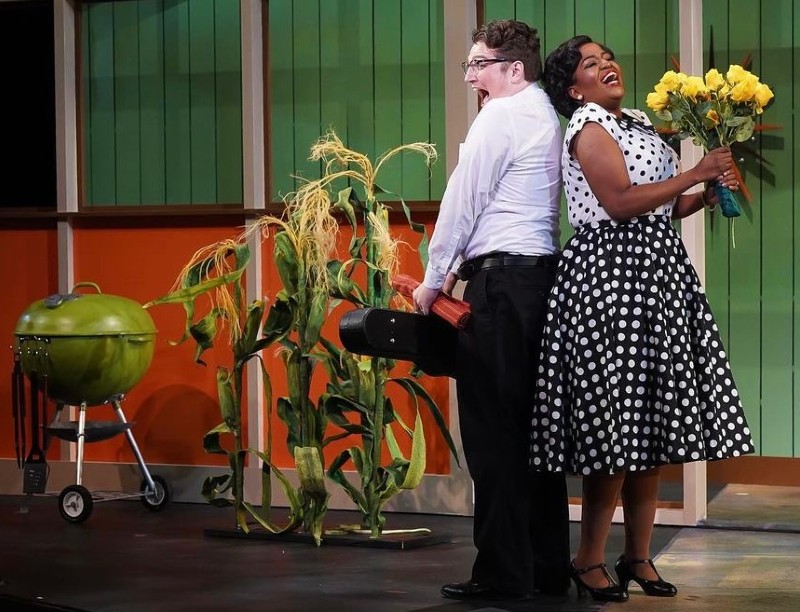
The classic Greek myth of Orpheus and Eurydice is everywhere in the performing arts right now. The play Eurydice, written by award-winning playwright Sarah Ruhl, is being performed on stages all over the U.S. and was adapted into an opera by the same name, and the Broadway smash hit musical Hadestown, which won eight Tony awards including Best Musical, is still going strong in New York City, has a thriving national tour, and is opening on the West End in 2024.
But before all of that, French composer Jaques Offenbach created Orphée Aux Enfers, or Orpheus in the Underworld, in 1858, and U-M's Department of Voice has put a whole new twist on it. (I went to the Thursday evening performance, and the actors I mention here may be different than those seen by others due to the double casting of the lead roles.)
Beauty and the Bard: Concordia University’s "Shakespeare in Love" is a tale of love, poetry, and laughs

Everyone knows Shakespeare's classic Romeo and Juliet. But how did that play come to fruition and what was Shakespeare’s inspiration for the tragic tale?
Concordia University's production of Shakespeare in Love, a play adapted by Lee Hall and based on the screenplay by Marc Norman and Tom Stoppard, takes us back to the days when William Shakespeare was a struggling poet and bard.
William Shakespeare (Corey Flanders) has a bad case of writer’s block. It’s even more dire that he owes two producers a script for a new show, so the pressure is on. His best friend and fellow bard, Kit Marlowe (Caleb Gross), has agreed to help him find some inspiration and has even helped edit a few of his lines. In this day and age, more people are seeing and loving shows written by Marlowe rather than Shakespeare.
Slowly but surely Shakespeare starts building the script for his famous Romeo and Juliet. He prematurely tells the producers he’s got something in the works and they run with it, holding auditions. At this time in history, women were not allowed to act on stage and all female roles were played by men in drag.
Bold Conversations: Theatre Nova's "What the Constitution Means to Me" explores big issues on a small stage
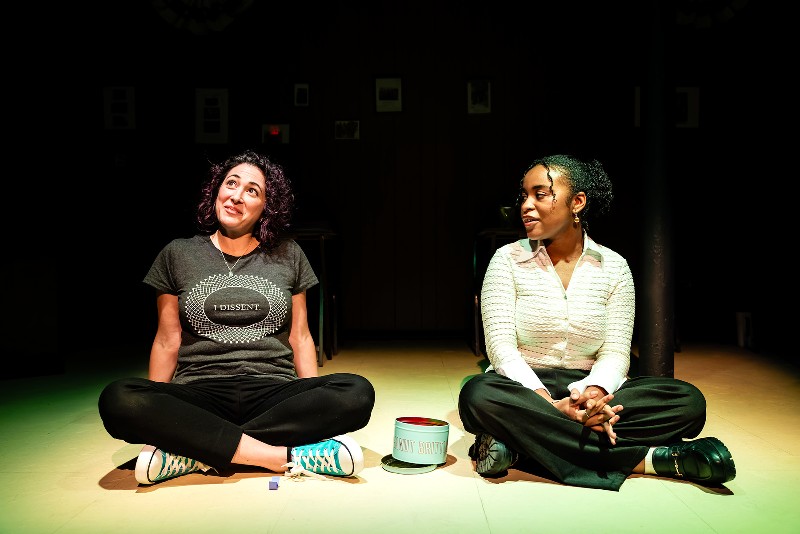
New York Times theater critic Jesse Green hailed Heidi Schreck’s play What the Constitution Means to Me as “not just the best play on Broadway, but also the most important.”
Here was a theater piece that grappled with real issues while also being funny and intimate. The playwright played herself, offering her story as a template for long-simmering grievance.
Schreck’s play was not the usual Broadway fare. The set was simple, the approach was friendly and beguiling—and then, quietly, outraged. Schreck used her own story to explore what the U.S. Constitution got right, where it failed, and its impact on the lives of everyone.
The play opened on Broadway in 2018, in the wake of the Me Too movement that put a bright spotlight on male privilege, violence, and smug disregard for half of the human race.
Yes, the play is about the Constitution but its real subject is a dawning feminism and how that hallowed document has helped and hindered the freedom of women and minorities over the last 235 years.
Theatre Nova is the perfect venue for Schreck’s play. It’s a small theater in the heart of a great university town, a place where arguments about the Constitution really matter. Nova is presenting What the Constitution Means to Me through November 9.
EMU’s "Sweet Charity" is fun and unique but needs just a little more sugar

All is fair in love and dancing in Eastern Michigan University's production of Sweet Charity, running this weekend at the Legacy Theatre.
This beloved musical, which always pulls the heartstrings of hopeless romantics, was created by some of Broadway’s greatest: Cy Coleman (music), Dorothy Fields (lyrics), and Neil Simon (book), with the original Broadway show directed and choreographed by Bob Fosse.
Set in 1966, the show follows Charity Hope Valentine (Isabella McQuigg), a hostess for the Fandango Ballroom in New York City, who wants more for herself. At the top of the show she is dating Charlie (Levi Greunke), and while she sees the relationship as perfect, it’s one-sided and he’s using her for her money. He even pushes Charity into the Central Park lake and steals all the money out of her purse.
University of Michigan Theatre takes the musical "Spelling Bee" on the road to Encore in Dexter

Can you spell collaboration?
Vincent Cardinal, a professor at the University of Michigan’s Musical Theatre Department and a board member at Dexter’s Encore Theatre, and Dan Cooney, Encore’s artistic director, see advantages for everyone in bringing a U-M production to the city, which they will do with The 25th Annual Putnam County Spelling Bee.
“The Encore, with its intimate setting and commitment to producing Broadway-worthy productions, is the ideal venue for this collaboration,” Cardinal said in a press release. “Artistic Director, Dan Cooney, and I have been talking about a collaboration for quite some time now and we are thrilled that it is finally coming to fruition!”
Coming to fruition is what The 25th Annual Putnam County Spelling Bee is all about. It’s a funny, goofy, but sensitive musical about a spelling bee. But it’s really about adolescence and the agony of growing up told through song, dance, humor, and spelling.
Cardinal is a director who gets the best out of his student casts. The spellers each have their quirks, anxieties, and troubles but for one shining moment, they get a chance to be in the spotlight. Cardinal and his cast balance the awkward humor of being young with spotlight moments that focus on the thoughts and worries of each character.
The show, with music and lyrics by William Finn and book by Rachel Sheinkin, plays on the usual cliches of nerdy young people who are not in with the cool kids. But the play then gives each speller a chance to confront the terrors of growing up and their aspirations for the future.
Creative Visions: Theater set designer Jungah Han conjures new worlds from scratch

Jungah Han doesn’t try to copy a successful look from a previous production of a play, musical, or opera she is designing. She doesn’t look at photos or read about what other designers have done, and she tells her University of Michigan students to begin without preconceptions, too.
At times—more often when she’s designing in the United States than abroad—she’s been asked to reproduce what’s been done in other productions.
She’s not interested in those jobs.
Han, who joined the faculty at the U-M School of Music, Theatre, and Dance last fall, is a theater artist. She brings her own response to a play, in collaboration with the director’s vision and those of others on the design team.
Yet, Han didn’t even know what theater was when she enrolled in Kangwon National University in her native South Korea. There, she studied business. “Part of business is marketing and advertising. I was interested in the design part,” recalls Han, who moved to Honolulu to study desktop publishing at Hawaii Pacific University.
Then, a tidal change.
Near, Far, Antics Wherever They Are: Jeff Daniels’ "Diva Royale" keeps the laughs flowing at the Purple Rose Theatre

Jeff Daniels’ funny, silly, and embraceable comedy Diva Royale is—as the program announces—back by public demand at his Purple Rose Theatre in Chelsea.
Three stay-at-home Michigan moms form a close bond with their devotion to Canadian diva Celine Dion and their discontent with home life. Dion is their anchor. They have all the albums, they know all the words to all the songs, they know the heartaches she’s endured and they also love (love, love, love) the movie Titanic, where Dion’s soaring voice gives lift to the love affair of poor Jack and well-to-do Rose.
When they discover that their goddess will be performing in the Big Apple, they are ready to set out on the adventure of a lifetime. As they tell us these events happened in 2019 BC—before covid.
The play is told in a fast-paced, frenetic style that keeps the jokes, the antics, and occasionally, the stinging truth at a high pitch. If one joke fails to amuse you, the next one will have you howling, as the audience was throughout the play at the press opening.
The Mating Game: Ann Arbor Civic Theatre's "The Matchmaker" Tells a Deeper Story Beyond "Hello, Dolly!"
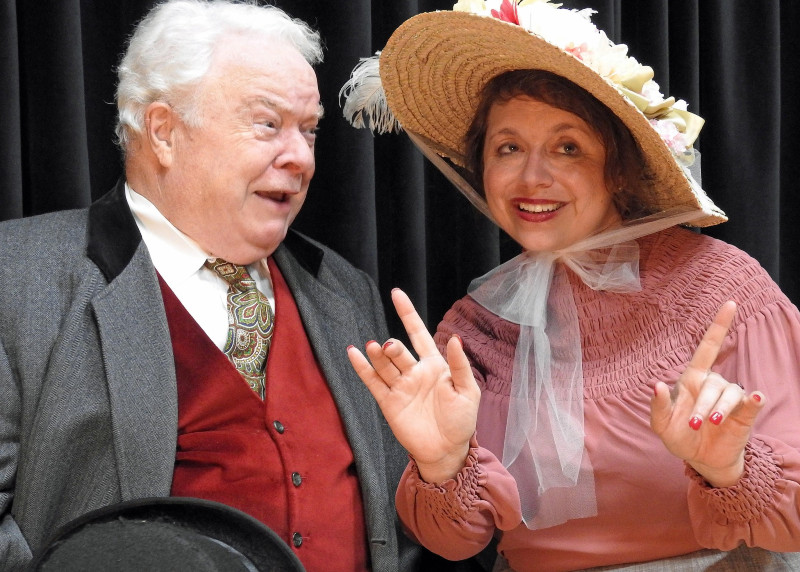
In 1955, playwright Thornton Wilder’s The Matchmaker became a Broadway hit that ran for 486 performances, toured successfully, became a movie, and was embraced by regional and community theaters across the country. Today, Wilder’s play is rarely performed because of Hello Dolly!
“It’s an American classic and it doesn’t get done because Hello, Dolly! gets done,” said Wendy Wright, the director of the Ann Arbor Civic Theatre’s production of The Matchmaker, which will run October 19-22 at the Arthur Miller Theatre.
Hello, Dolly! is, of course, the hit musical adaptation of Thornton Wilder’s play with music and lyrics by Jerry Herman. The song "Hello, Dolly!" was a mega-hit for Louis Armstrong before the musical was up and running, and the musical gave Carol Channing her greatest role. It, too, became a movie with Barbra Streisand and Walter Matthau.
The Matchmaker has an interesting history. It began as a one-act play in England in 1835 and was expanded into a full-length play by an Austrian playwright in 1842. In 1938, Wilder, a three-time Pulitzer Prize-winning playwright and novelist, created an American version of the story that he called The Merchant of Yonkers. It flopped. But Wilder regrouped, put the focus on Dolly, and created The Matchmaker. He won the Pulitzer for the plays, Our Town and The Skin of Our Teeth, and the novella, The Bridge of San Luis Rey.
Deep in the Woods: "The Man Beast" is haunted, moody, and anxious
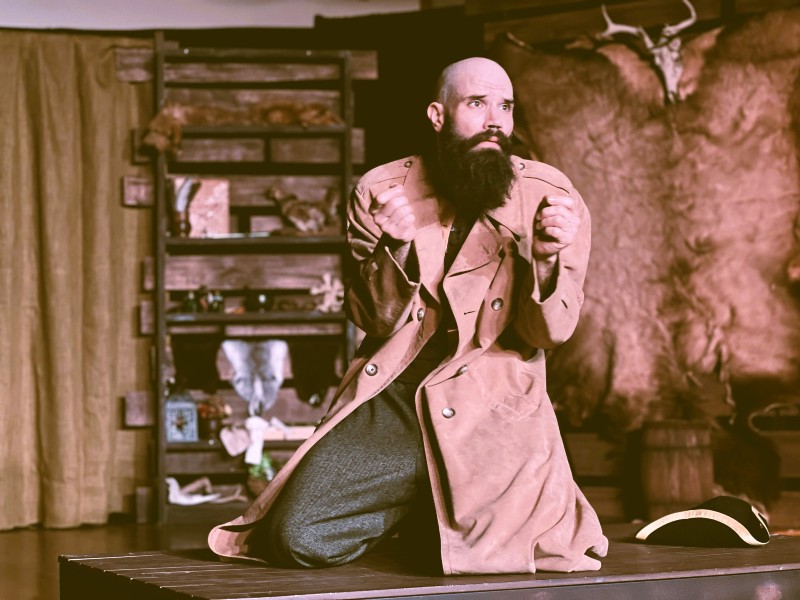
’Tis the season for witches and werewolves.
Also—if the Penny Seats Theatre Company’s production of Joseph Zettelmaier’s The Man Beast is any indication—taxidermy, folklore, French accents, and skullduggery.
Set in 1767 France, The Man Beast unfolds in the secluded home of healer and taxidermist Virginie Allard (Brittany Batell), who’s all too aware of her local reputation as “the witch of the woods.” When fellow outcast Jean Chastel (Jonathan Davidson), injured while hunting a legendarily lethal wild beast, barrels his way into the widow’s workshop, Virginie tends to his wounds, and the two form an uneasy alliance.
Yes, the two become lovers, but they also hatch a plan to collect King Louis XVI’s generous bounty for the beast. Jean notes that there have been no deaths in the nearby village since his run-in with it, so, his argument goes, he may well have succeeded in killing the creature. In the absence of more tangible proof, though, he must travel to a far-off menagerie to procure the carcass of a wild, exotic animal, then bring it back to Virginie to prepare it for a dramatic presentation at court.
The pair’s plot succeeds, but as we all know, money can’t buy happiness, and the bond between the two starts to fray.


































